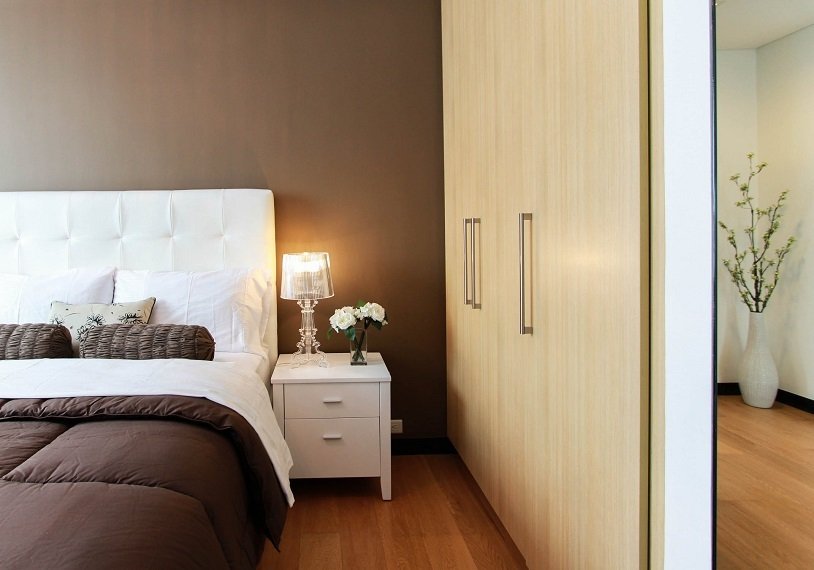LOGAN REGIONAL HOSPITAL TRANSITIONAL CARE UNIT - LOGAN Utah
- Retirement Homes
- /
- Retirement Homes in Utah
- /
- Logan Retirement Homes
- /
- Logan Regional Hospital Transitional Care Unit
Logan Regional Hospital Transitional Care Unit
Logan Regional Hospital Transitional Care Unit is a retirement facility located in LOGAN in the 84341 zip code area. Some of the services it may offer to Utah seniors include 11 senior apartments, assisted living, memory care and senior living units. Full list of services and amenities that may be offered by Logan Regional Hospital Transitional Care Unit can be seen below.
Address: 500 EAST 1400 NORTH, Logan, Utah 84341
County: CACHE County
Capacity: 11 senior citizens
Licence# 465123
Logan Regional Hospital Transitional Care Unit - Amenities:
There are many amenities offered by Logan Regional Hospital Transitional Care Unit and they include:
- Flexible visiting hours
- Therapy section
- Allows dogs and cats
- Dedicated movie viewing area
- Keyless entry with keypad
- Maintenance of apartment units and community grounds
- Transportation to outings and doctor appointments
- Medication set-up and reminders
- Outdoor patios
- Apartment cleaning and housekeeping services
- On-site security 24/7
- Trained staff available 24/7
- Creative arts and crafts
- Taking care of laundry
- On-site hair salon and grooming services
- Walking paths
- Wellness check-ups by a doctor every month
- Concierge service
- All basic utilities included
- Well-designed communal dining area
- All-inclusive dining
- Special food options for special occasions and birthdays
- Planned birthday and holiday parties
- Games and activities room
- Daily physical fitness activities

Logan Regional Hospital Transitional Care Unit - Assisted Living & Care Services:
Logan Regional Hospital Transitional Care Unit provides help to senior citizens with a large number of activities of daily living including:
- Assistance with incontinence problems
- Manually feeding if required
- Special services for Parkinson's disease patients
- Physical therapy services
- showering

Logan Regional Hospital Transitional Care Unit - Accommodation Options:
Logan Regional Hospital Transitional Care Unit allows its residents to choose many accommodation options, such as:
- Grab bars and non-slip flooring
- Safety features in all units
- Semi-private living quarters
- 1-bedroom

Frequently Asked Questions
What services are typically offered in retirement communities?
Retirement communities such as Logan Regional Hospital Transitional Care Unit often provide a range of services tailored to seniors' needs. These services may include independent living options, assisted living, memory care, and skilled nursing care. Common amenities include dining facilities, recreational activities, fitness centers, and transportation services. Some communities also offer on-site medical care and assistance with daily living tasks. It's important to research specific retirement communities to understand the services they offer as they can vary widely.
How do I determine if Logan Regional Hospital Transitional Care Unit is the right retirement community for my needs?
Choosing the right retirement community involves careful consideration of your individual needs and preferences. Start by determining your budget and location preferences. Next, assess the level of care you require, whether it's independent living, assisted living, or specialized care for conditions like dementia. Visit potential communities such as Logan Regional Hospital Transitional Care Unit to assess the environment, amenities, and the friendliness of the staff. Talk to current residents to get their perspectives. Additionally, consult with family members and healthcare professionals for their input. Ultimately, the right retirement community will align with your lifestyle, care needs, and budget.
What is the cost structure of retirement communities like Logan Regional Hospital Transitional Care Unit?
The cost of retirement communities such as Logan Regional Hospital Transitional Care Unit can vary widely based on several factors. These factors include location, the type of community (e.g., independent living, assisted living, or memory care), the size of the living space, and the range of services and amenities provided. Monthly fees typically cover accommodation, meals, utilities, maintenance, and some level of healthcare services. Some communities may also require an entrance fee or a buy-in fee, which can be a significant upfront cost. It's crucial to thoroughly review the pricing structure and contracts before choosing a retirement community to ensure you understand all associated costs and payment options.
Are there age requirements to live in Logan Regional Hospital Transitional Care Unit?
Most retirement communities have age requirements to ensure that their residents are of retirement age. Typically, this age is set at 55 or older, but it can vary among communities. Some communities may have specific age restrictions for different levels of care within the community. It's essential to check with Logan Regional Hospital Transitional Care Unit to understand their age requirements and any exceptions they may offer.
Can I bring my pet to Logan Regional Hospital Transitional Care Unit?
The pet policies in retirement communities vary. Some communities are pet-friendly and allow residents to bring their pets, while others have restrictions on the types and sizes of pets allowed. There may also be rules regarding pet care responsibilities and designated pet-friendly areas within the community. If having a pet is essential to you, it's crucial to inquire about the specific pet policies at Logan Regional Hospital Transitional Care Unit and ensure they align with your needs and preferences.
What should I consider when planning for the financial aspects of retirement community living?
Planning for the financial aspects of retirement community living is essential. Start by assessing your current financial situation, including your savings, investments, and income sources such as pensions or Social Security. Determine your budget for monthly living expenses and factor in the cost of the retirement community, including any entrance fees or buy-in fees. Consider whether you may need to access long-term care insurance or Medicaid in the future. It's advisable to consult with a financial advisor or eldercare specialist to create a comprehensive financial plan that ensures you can comfortably afford retirement community living while maintaining financial security.
Consider other retirement facilities nearby:
Other Retirement Facilities:
- Rocky Mountain Care - Logan - LOGAN, UT
- Sunshine Terrace Foundation - LOGAN, UT
- Beehive Homes Of Logan - LOGAN, UT
- Terrace Grove Assisted Living - LOGAN, UT
- Legacy House Of Logan Assisted Living - LOGAN, UT
- Williamsburg Retirement Community - LOGAN, UT
- Maple Springs Of North Logan - Assisted Living - NORTH LOGAN, UT
- Autumn Care Living Center - HYDE PARK, UT
- The Family Place Senior Center - LEWISTON, UT
- Sunrise Park Assisted Living - LEWISTON, UT
Talk to a retirement living advisor. 100% free, no obligation information.
(888) 989-7961 Sponsored Ad

